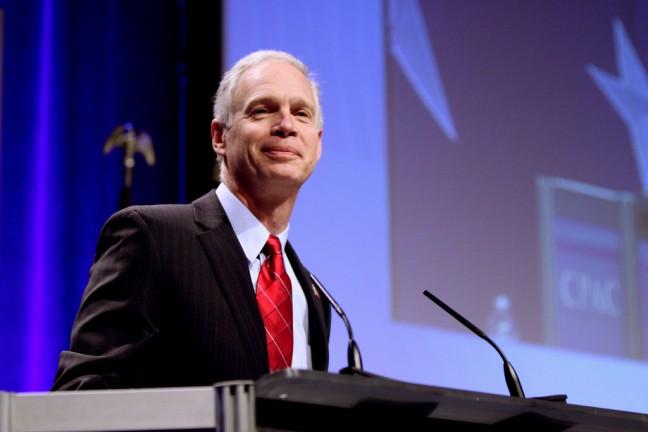U.S. Sen. Ron Johnson, R-Wisconsin, released a public statement Monday that said, “I strongly agree that the American people should decide the future direction of the Supreme Court by their votes for president and the majority party in the U.S. Senate.”
As I’ve come to expect from Johnson, he wasn’t the architect of this idea. He was merely spouting exactly what U.S. Senate Majority Leader Mitch McConnell, R-Kentucky, and other Republican leaders’ stance on the nomination process to replace former Supreme Court Justice Antonin Scalia.
Now, I’m as much for public input into government as all other red-blooded Americans, but I recall a presidential election occurring in 2012 when America elected a president, and that person was President Barack Obama. He was elected to a four-year term, and I expect him to do this job for a full four years.
Part of his job is nominating Supreme Court justices; part of Johnson’s job is to vote as to whether or not those nominees get onto the bench or not.
If Johnson really wants public opinion in the selection of Supreme Court justices, maybe he should advocate for the federal government to adopt Wisconsin’s election system for state Supreme Court justices.
Of course, Johnson wouldn’t advocate for this since he was merely repeating what other high-ranking Republicans were saying. He even admitted to this in an interview Tuesday.
“McConnell came out literally, within, I’m not even sure he took an hour, maybe two hours,” he said in the interview. “And then [U.S.] Sen. [Chuck] Grassley, [R-Iowa], who’s chairman of the Judiciary Committee, which would be the first hurdle any nominee would have to go through.”
Additionally, Johnson backpedalled on his original statement in the interview and said, “I’ve never said that I wouldn’t vote, or that we shouldn’t vote.”
While this statement is definitely an improvement for Johnson (he’s actually agreed to do his job), I think what I and most of Wisconsin wants is a senator that, instead of merely restating what party leaders say, is able to add his or her own insight to a political situation.
And that’s what Johnson founded his campaign on in 2010. He vowed to bring in an outsider’s perspective to Washington D.C. that would reign in spending and right the economy. But far from remaining an independent outsider, Johnson has become the Washington insider he so despised.
Aaron Reilly ([email protected]) is a freshman majoring in comparative literature and Russian.














